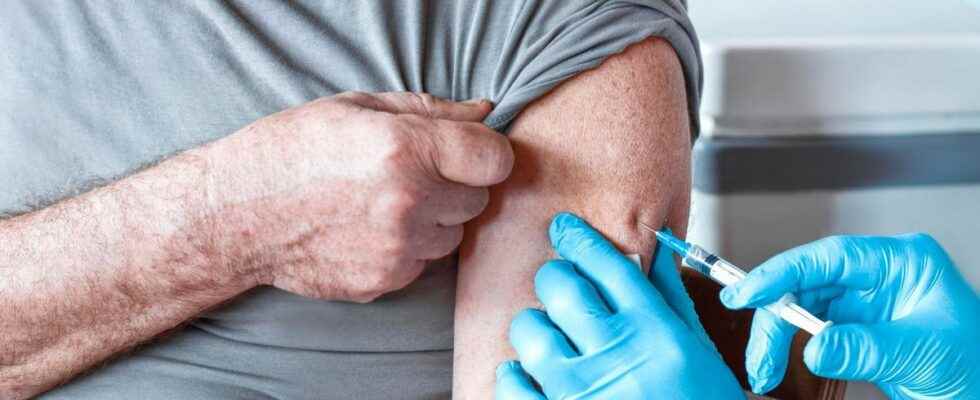Published on
Updated
Reading 3 mins.
in collaboration with
Dr Gérald Kierzek (Medical Director of Doctissimo)
According to a new study carried out by the EPI-PHARE group, reminders of anti-Covid vaccines reinforce protection against serious forms and the risk of hospitalization, including against the latest Omicron BA.4 and BA.5 variants.
What is the protection provided by a vaccine against Covid-19 several months after a booster injection? To answer this question, scientists from the EPI-PHARE group – the scientific interest group associating the National Health and Medicines Agency (ANSM) and the National Health Insurance Fund – carried out a pharmaco- epidemiology to assess the effectiveness of booster doses of monovalent mRNA vaccines, Comirnaty (Pfizer-BioNtech) and Spikevax (Moderna). The work was supervised by epidemiologist and director of EPI-PHARE, Dr. Mahmoud Zureik.
A study based on data from different information systems
For this study, the scientists worked from data taken from different information systems. The objective is to trace the vaccination and the status of the tests (positive or not) carried out in 38,839 hospitalized patients between 1er June and October 15, 2022. Conclusion: “The results of this new study show that booster doses are effective against the risk of hospitalization for Covid-19 in times of predominance of the Omicron BA.4 and BA.5 subvariants, but that this protection decreases over time. The level of efficacy is all the more important as the number of doses received is high or the time since the last dose is short.“.
Vaccination “effective against severe forms”
More simply, vaccination against Covid-19 has therefore demonstrated its effectiveness against hospitalizations for severe forms, even against the latest sub-variants of the virus, in particular BA.4 and BA.5 from Omicron. On the other hand, it does not reduce the risk of being contaminated in the medium or long term.
Nevertheless, even after two years, people who have received two doses of vaccine are still better protected than the non-vaccinated against severe forms of Covid-19, with an effectiveness of 45% against the risk of hospitalization.
Reminders, an extra dose of protection
Finally, the scientists point out that “booster doses are 56% effective for the first booster dose (3rd dose) and 75% effective for the 4th and 5th doses” and “compared to the primary vaccination, the additional efficacy of a booster dose (3rd, 4th or 5th dose) is estimated at 69% in the first two months following the injection”.
But the effect of these reminders quickly diminishes over time. After six months, there is little difference compared to people who have only had one vaccination: “The effectiveness of booster doses decreases over time, dropping from 55% between two and four months, to 30% between four and six months and then to 22% six months after the primary vaccination. The additional efficacy of the second booster vaccine (4th dose) compared to the first booster (3rd dose) is estimated at 44%”.
Asked about this work, Dr Gérald Kierzek believes that “the targeted vaccination strategy must continue, by offering the vaccine to subjects at risk”. The doctor stresses, however, that the spacing of doses and boosters is made difficult by the more unpredictable nature of the Covid epidemic.
A study shows that vaccination against Covid-19 reduces the risk of cardiovascular disease
Researchers from the Icahn School of Medicine at Mount Sinai have just published a study based on data from the National COVID Cohort Collaborative (N3C), the largest US Covid-19 database.
According to their work, vaccination against Covid-19 is associated with fewer heart attacks, strokes and other cardiovascular problems in people infected with SARS-CoV-2, the virus that causes Covid. -19.
The two lead authors, Drs. Irene Girish N. Nadkarni and Arthur M. Fishberg, explain that they discovered that “among those with comorbidities, such as type 2 diabetes, high cholesterol, liver disease, and obesity, there is an association with a lower risk of complications. Although we cannot attribute causation, this is supporting evidence that vaccination may have beneficial effects on a variety of post-Covid-19 complications.”.
